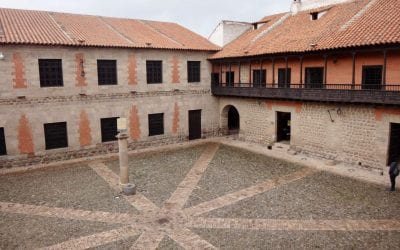Editor’s Letter
Upstairs, Downstairs (and In-Between)
When Argentine biologist Otto Solbrig was interim DRCLAS faculty director many years ago,
he commented more than once that ReVista did not feature enough photos of middle-class people. I tried to respond to his comments, pleading with students during their time in Latin America to take pictures of their host families, of birthday parties and other events that would reflect the continent’s growing middle class.
Photos occasionally trickled in, but those of markets and street scenes and agricultural workers were more compelling and often reflected students’ fieldwork as well. Otto Solbrig’s comment also got me thinking about other images we generally don’t see in ReVista, domestic workers, for example (that’s remedied in this issue, where the “downstairs” of domestic workers is examined from many perspectives). We don’t see images of fabulously rich mansions and yachts, the extreme “upstairs” of Latin America’s billionaires (and you won’t in this issue either).
“Upstairs, Downstairs” is an exploration of social mobility in Latin America and the Caribbean. Especially after a two-year pandemic, middle-class citizens are finding that their status is precarious. And, as several of the articles point out, many of those who perceive themselves as middle class—culturally, as well as economically—do not meet the international criteria of what it means to lead a middle-class life.
Immigration and race figure into the equation of who is upstairs and who’s downstairs, as does gender. We’ve aimed to get beyond the big-city perspective, looking at a mid-sized city in Mexico and rural areas in Colombia. We’ve also tried to present you with a blend of statistics and personal stories to bring to you a multi-faceted overview, ranging from the concentration of wealth in Latin America to the challenges faced by the middle class and the struggles of domestic workers.

Winter 2022, Volume XXI, Number 2
Related Articles
Paid Domestic Workers, Women and Democracy
I first visited Peru in 1995 as a graduate student and junior member of a Latin American Studies Association delegation to examine the state of democracy in that country on the…
Invisible Commutes
English + Español
Belén García, a Colombian domestic worker, wakes up at five in the morning every day in her home in the chilly mountains of southeastern Bogotá. After taking a shower, she dresses in several…
Slavery Upstairs, Slavery Downstairs
On February 14, 1800, someone slipped an anonymous letter to the solicitor general of Lima’s high court via one of his domestic servants. When he opened it, the solicitor (fiscal)…




